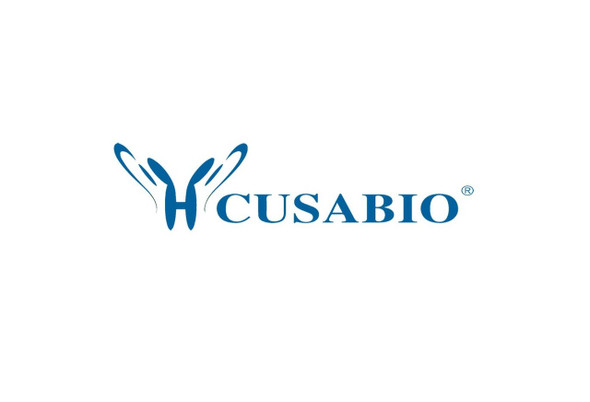Cusabio Mouse Recombinants
Recombinant Mouse Roundabout homolog 1 (Robo1) , partial | CSB-MP020054MO
- SKU:
- CSB-MP020054MO
- Availability:
- 18 - 28 Working Days
Description
Recombinant Mouse Roundabout homolog 1 (Robo1) , partial | CSB-MP020054MO | Cusabio
Alternative Name(s): Robo1; Dutt1; Roundabout homolog 1
Gene Names: Robo1
Research Areas: Cancer
Organism: Mus musculus (Mouse)
AA Sequence: YRHRKKRNGLTSTYAGIRKVPSFTFTPTVTYQRGGEAVSSGGRPGLLNISEPATQPWLADTWPNTGNNHNDCSINCCTAGNGNSDSNLTTYSRPADCIANYNNQLDNKQTNLMLPESTVYGDVDLSNKINEMKTFNSPNLKDGRFVNPSGQPTPYATTQLIQANLSNNMNNGAGDSSEKHWKPPGQQKPEVAPIQYNIMEQNKLNKDYRANDTIPPTIPYNQSYDQNTGGSYNSSDRGSSTSGSQGHKKGARTPKAPKQGGMNWADLLPPPPAHPPPHSNSEEYNMSVDESYDQEMPCPVPPAPMYLQQDELQEEEDERGPTPPVRGAASSPAAVSYSHQSTATLTPSPQEELQPMLQDCPEDLGHMPHPPDRRRQPVSPPPPPRPISPPHTYGYISGPLVSDMDTDAPEEEEDEADMEVAKMQTRRLLLRGLEQTPASSVGDLESSVTGSMINGWGSASEEDNISSGRSSVSSSDGSFFTDADFAQAVAAAAEYAGLKVARRQMQDAAGRRHFHASQCPRPTSPVSTDSNMSAVVIQKARPAKKQKHQPGHLRREAYADDLPPPPVPPPAIKSPTVQSKAQLEVRPVMVPKLASIEARTDRSSDRKGGSYKGREALDGRQVTDLRTNPSDPREAQEQPNDGKGRGTRQPKRDLPPAKTHLGQEDILPYCRPTFPTSNNPRDPSSSSSMSSRGSGSRQREQANVGRRNMAEMQVLGGFERGDENNEELEETES
Source: Mammalian cell
Tag Info: N-terminal 6xHis-tagged
Expression Region: 880-1612aa
Sequence Info: Partial
MW: 84 kDa
Purity: Greater than 90% as determined by SDS-PAGE.
Relevance: Receptor for SLIT1 and SLIT2 that mediates cellular responses to molecular guidance cues in cellular migration, including axonal navigation at the ventral midline of the neural tube and projection of axons to different regions during neuronal development (PubMed:10433822, PubMed:24560577). Interaction with the intracellular domain of FLRT3 mediates axon attraction towards cells expressing NTN1 (PubMed:24560577). In axon growth cones, the silencing of the attractive effect of NTN1 by SLIT2 may require the formation of a ROBO1-DCC complex (By similarity). May be required for lung development (PubMed:11734623).
Reference: "The mouse homologue of human DUTT1/H-robo1 gene: protein sequence and chromosomal location."Wu M.C., Lowe N., Fordham R., Rabbitts P.Submitted (JUL-1998) to the EMBL/GenBank/DDBJ databases
Storage: The shelf life is related to many factors, storage state, buffer ingredients, storage temperature and the stability of the protein itself. Generally, the shelf life of liquid form is 6 months at -20?/-80?. The shelf life of lyophilized form is 12 months at -20?/-80?.
Notes: Repeated freezing and thawing is not recommended. Store working aliquots at 4? for up to one week.
Function: Receptor for SLIT1 and SLIT2 that mediates cellular responses to molecular guidance cues in cellular migration, including axonal navigation at the ventral midline of the neural tube and projection of axons to different regions during neuronal development
Involvement in disease:
Subcellular Location: Cell membrane, Single-pass type I membrane protein, Cell projection, axon
Protein Families: Immunoglobulin superfamily, ROBO family
Tissue Specificity: Detected in embryonic thalamus neurons (at protein level) (PubMed:24560577). Expressed in embryonal spinal chord. Expressed in embryonal lung, and in adult lung bronchial epithelial cells of large proximal airways.
Paythway:
Form: Liquid or Lyophilized powder
Buffer: If the delivery form is liquid, the default storage buffer is Tris/PBS-based buffer, 5%-50% glycerol. If the delivery form is lyophilized powder, the buffer before lyophilization is Tris/PBS-based buffer, 6% Trehalose, pH 8.0.
Reconstitution: We recommend that this vial be briefly centrifuged prior to opening to bring the contents to the bottom. Please reconstitute protein in deionized sterile water to a concentration of 0.1-1.0 mg/mL.We recommend to add 5-50% of glycerol (final concentration) and aliquot for long-term storage at -20?/-80?. Our default final concentration of glycerol is 50%. Customers could use it as reference.
Uniprot ID: O89026
HGNC Database Link: N/A
UniGene Database Link: UniGene
KEGG Database Link: KEGG
STRING Database Link: STRING
OMIM Database Link: N/A









